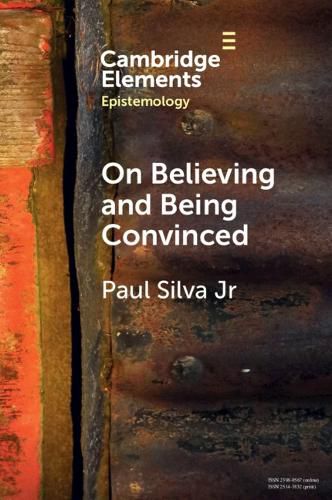Readings Newsletter
Become a Readings Member to make your shopping experience even easier.
Sign in or sign up for free!
You’re not far away from qualifying for FREE standard shipping within Australia
You’ve qualified for FREE standard shipping within Australia
The cart is loading…






Our doxastic states are our belief-like states, and these include outright doxastic states and degreed doxastic states. The former include believing that p, having the opinion that p, thinking that p, being sure that p, being certain that p, and doubting that p. The latter include degrees of confidence, credences, and perhaps some phenomenal states. But we also have conviction (being convinced simpliciter that p) and degrees of conviction (being more or less convinced that p). This Element shows: how and why all of the outright doxastic states mentioned above can be reduced to conviction thresholds; what degrees of conviction fundamentally are (degreed reliance-dispositions); why degrees of conviction are not credences; when suspending a belief is compatible with continuing to believe; and the surprising extent to which Kant endorsed the theory of conviction that emerges in this Element.
$9.00 standard shipping within Australia
FREE standard shipping within Australia for orders over $100.00
Express & International shipping calculated at checkout
Our doxastic states are our belief-like states, and these include outright doxastic states and degreed doxastic states. The former include believing that p, having the opinion that p, thinking that p, being sure that p, being certain that p, and doubting that p. The latter include degrees of confidence, credences, and perhaps some phenomenal states. But we also have conviction (being convinced simpliciter that p) and degrees of conviction (being more or less convinced that p). This Element shows: how and why all of the outright doxastic states mentioned above can be reduced to conviction thresholds; what degrees of conviction fundamentally are (degreed reliance-dispositions); why degrees of conviction are not credences; when suspending a belief is compatible with continuing to believe; and the surprising extent to which Kant endorsed the theory of conviction that emerges in this Element.